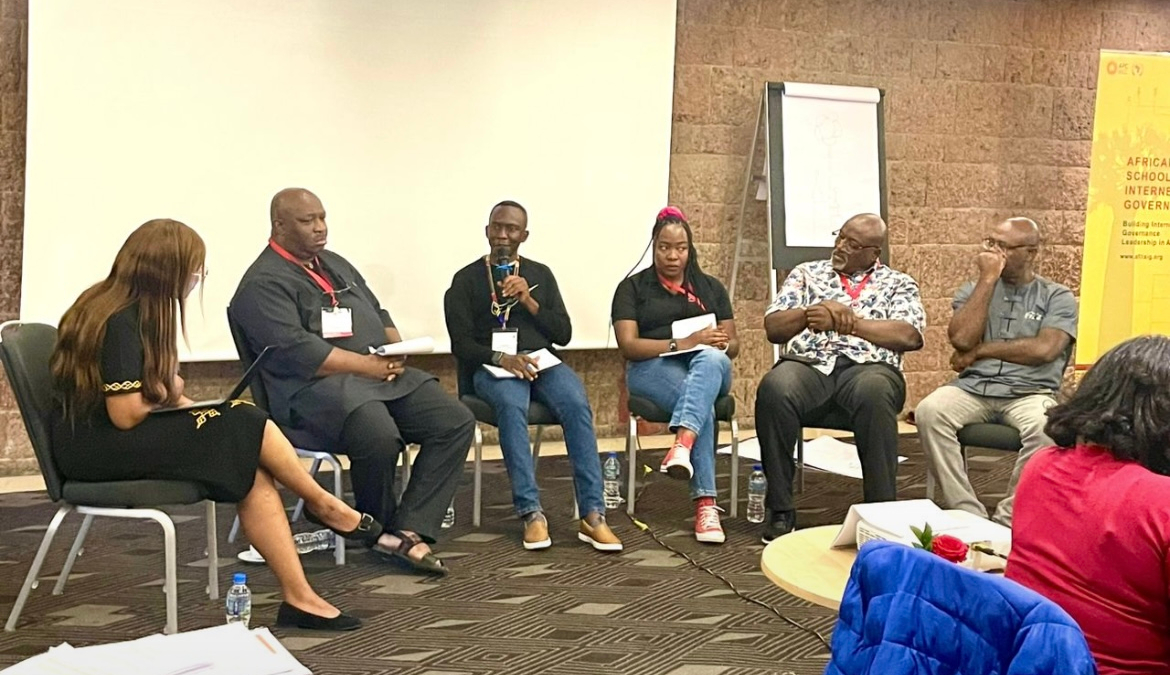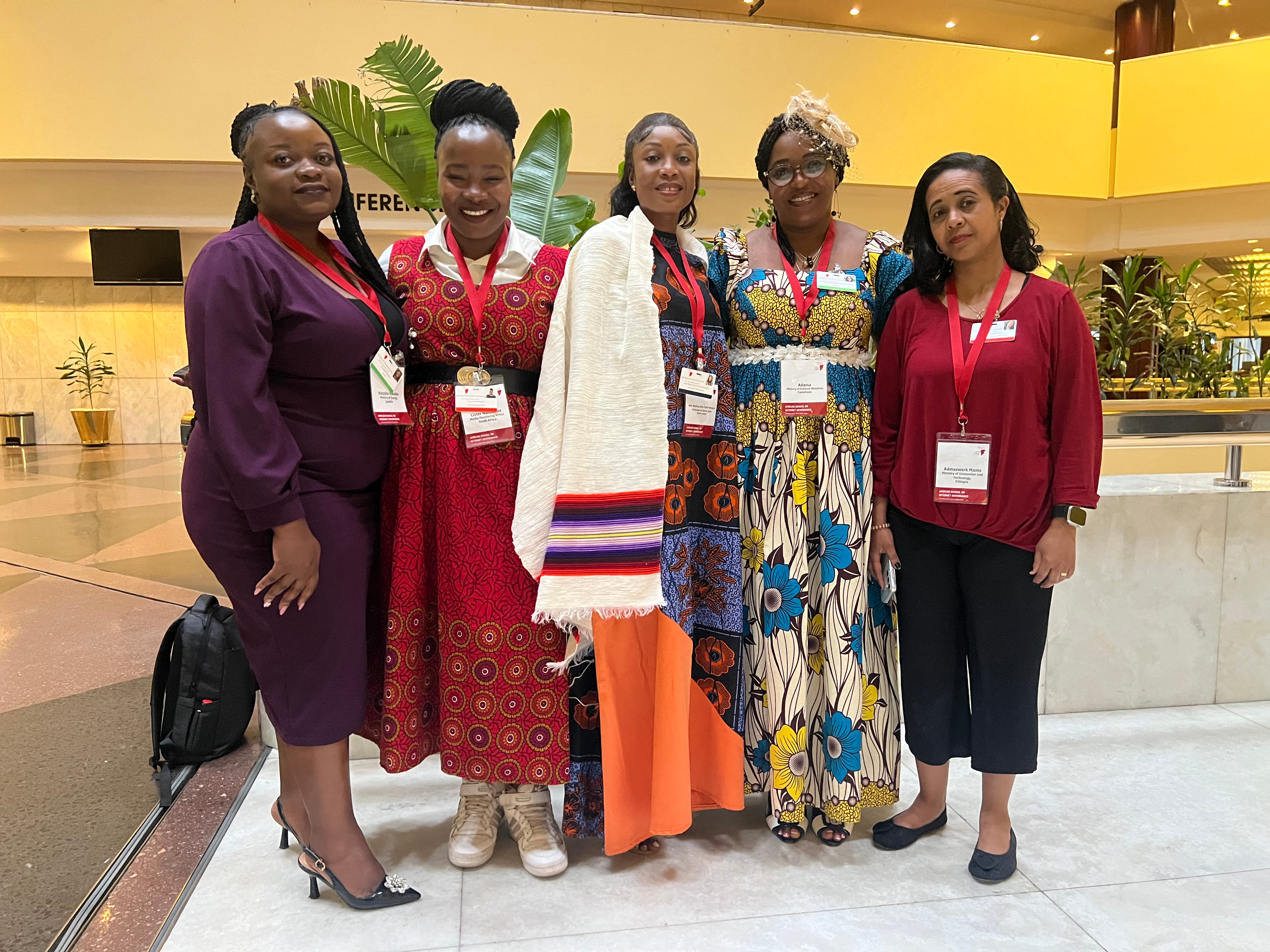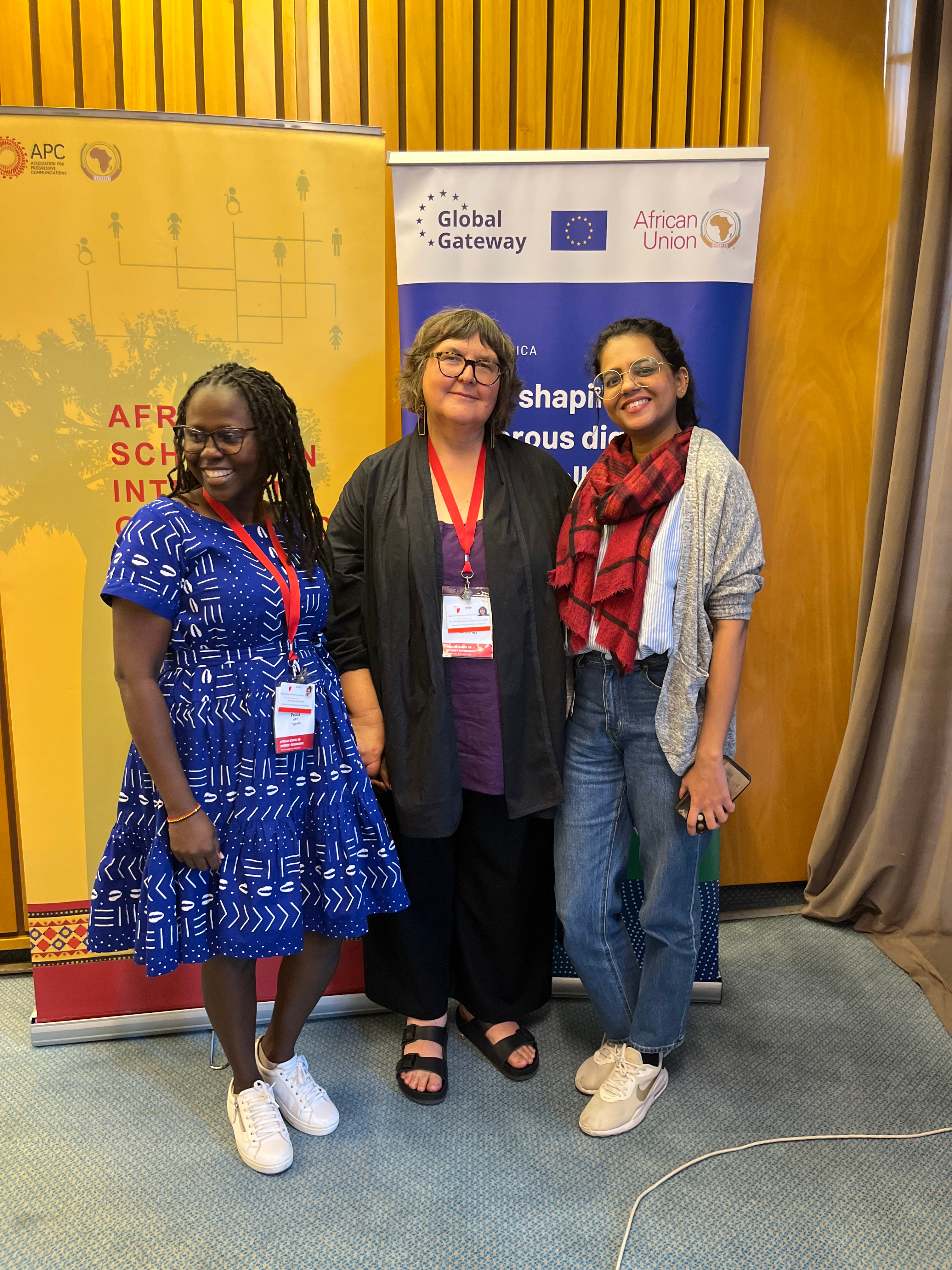
As the digital landscape rapidly evolves, the role of African countries in shaping global internet governance frameworks has never been more critical. The 2024 edition of the African School on Internet Governance (AfriSIG) brought together a diverse group of stakeholders to explore the pressing issues surrounding the governance of the internet, with a particular focus on data governance and free trade in Africa.
Hosted annually by the Association for Progressive Communications (APC) and its partners, AfriSIG has become a pivotal platform for engaging with African civil society members, policymakers, journalists and tech experts on the intersection of technology, policy, human rights and governance. The core of AfriSIG’s mission lies in bridging the gap between technical, legal, economic and social perspectives on the internet.
The 2024 edition of AfriSIG took place from 14 to 19 November in Addis Ababa, Ethiopia, immediately prior to the Africa Internet Governance Forum (AfIGF). It explored the link between the African Union Data Policy Framework and the African Continental Free Trade Area’s (AfCFTA) Digital Protocol, focusing on equipping participants with the tools and knowledge to engage effectively in the ongoing debates and policy-making processes around internet governance. “The practicum was about going through the AfCFTA Digital Protocol to see how it complements the African Union Data Policy Framework, which encourages data flows within the continent while providing frameworks for human rights safeguards and addressing the special contexts in the continent,” noted Liz Orembo, this year's AfriSIG secretariat and a researcher and coordinator with Research ICT Africa.

The gathering was convened by APC along with the African Union Commission (AUC) and Research ICT Africa, and organised in collaboration with the United Nations Internet Governance Forum Parliamentary Track, and the hosts and organisers of the 2024 African IGF, the United Nations Economic Commission for Africa and the African IGF Multistakeholder Advisory Group.
A snapshot of the 2024 edition
This year AfriSIG welcomed over 45 participants, known as fellows, from across the African continent. They included representatives from civil society, government, academia, the private sector and international organisations, as well as five parliamentarians and one senator, all with a shared interest in strengthening African engagement in global internet governance. "We were privileged to have a group of participants rich in diversity and experience, from young social entrepreneurs to senior politicians to youth tech activists," reflected Anriette Esterhuysen, APC’s senior advisor on global and regional internet governance and longtime AfriSIG organiser. "They really wanted to be there, and their willingness to share their knowledge was matched by their willingness to ask challenging questions and debate difficult topics."
As with previous editions, this year’s practicum combined theoretical and practical learning alongside collaborative group work and opportunities for participants to engage with experienced practitioners in the field of digital rights and internet governance. "What was impactful for me was the process of the practicum, which came with incredible commitment from all participants," said Peace Oliver Amuge, APC’s Africa regional strategy lead and this year's AfriSIG coordinator. "It is a practical learning experience for participants as they make recommendations, listen to submissions from other stakeholders, make comments and finally agree on the final document together as a multistakeholder. It is a true definition of multistakeholderism that it stands for."
The programme was designed to provide fellows with an understanding of internet governance, equip them with the skills to contribute to multistakeholder policy dialogues, and create a network of informed advocates who can influence internet policy on both regional and global levels. It was structured so as to encourage collaboration and knowledge sharing, with opportunities for participants to exchange ideas and experiences in order to build a comprehensive understanding of internet governance. “The 100% immersive learning schedule makes it a one-of-a-kind experience,” said Kenneth Oyeniyi, an AfriSIG 2024 fellow and the communications officer at Paradigm Initiative. “The programme was not just designed around learning but also, importantly, around active participation.”

The core components of the event included lectures and presentations, group discussions and debates, workshops, and guest speakers from the global internet governance community. It resulted in the production of an output document that sets out concrete steps for advocacy in internet governance spaces.
Key topics and takeaways
This year’s AfriSIG delved into a variety of critical topics, providing a holistic view of the complex issues facing African countries as they navigate the digital age. "The practicum topic was not a simple one; understanding what the digital protocol of the African Continental Free Trade Area entails and how to harmonise it with the African Union's Data Policy Framework seemed an almost impossible task at the outset," explained Esterhuysen. "But by the end of the week participants produced a well-argued output document that reflects the perspective of different stakeholder groups on exactly how to go about this and in doing so, to address key concerns such as digital inclusion and development."
One of the central issues discussed was the global digital divide and its impact on Africa, particularly in terms of access to infrastructure, affordability and digital literacy. Other key topics included cybersecurity and data privacy, multistakeholderism and governance models, digital rights (particularly particularly freedom of expression and access to information), the impact of climate change and the future of internet governance in Africa.
Celebrating Excellence at AfriSIG 2024
A moment of pride for PAYAIG! Athanase Bahizire (DRC), our 2024 French cohort facilitator, received the inaugural Makane Faye AfriSIG Award for his outstanding commitment and dedication to advancing internet governance knowledge.
We also… pic.twitter.com/dcysiQ1IQU— PAYAIG (@PAYA_IG) December 4, 2024
Following the event, fellows shared a broad range of insights and takeaways that underscore the region’s growing influence in global conversations around internet governance. “The discussions illuminated the challenges and opportunities that arise in our increasingly digital world, particularly in the context of Africa's evolving digital landscape,” explained Angela Sulemana, a 2024 AfriSIG fellow who is a medical doctor and the Ghana country director at AI for Africa. “The conversations surrounding human rights and digital rights were equally thought-provoking, emphasising the need for a balanced approach to technology that safeguards individual freedoms while promoting innovation.”
One of the major themes throughout the event was the importance of developing inclusive, regionally tailored policies that reflect Africa’s unique needs and challenges. “I realised that we are all working towards the same cause, and to be effective, we need to work with each other instead of talking across each other with statements,” noted Orembo.

Another key takeaway was the need for stronger regional cooperation on issues such as cybersecurity, data protection and internet infrastructure. “I have taken with me the importance of collaboration, especially at the African level, as it appears many of the challenges and opportunities are actually similar across most countries on the continent,” said Kamufisa Manchishi, an AfriSIG 2024 fellow and lecturer and researcher in journalism and media studies at the Institution-Mulungushi University, Zambia. “I learned that to create any meaningful impact we must as much as possible avoid working in silos in our countries and find ways to synchronise our work so that certain changes are made at the highest level on the continent.”
Civil society's engagement in internet governance remains crucial, and AfriSIG fellows underscored that the voices of marginalised communities must be amplified in both national and international policy discussions. “The knowledge and perspectives I gained will not only enhance my professional endeavours but also empower me to contribute meaningfully to discussions about digital transformation in Ghana and beyond,” commented Sulemana. This is crucial as civil society continues to push for policies that promote human rights, digital inclusion and equitable access to technology.
Looking ahead: AfriSIG’s role in shaping the digital future
AfriSIG, now in its twelfth year, continues to serve as a crucial educational and advocacy space for building capacity among stakeholders, underscoring the importance of inclusive, regionally relevant discussions in a world increasingly dominated by digital transformation. The need for stronger civil society engagement in global internet governance spaces such as the UN’s Internet Governance Forum (IGF), and the importance of empowering African governments to take an active role in shaping global internet policies, remain at the forefront of recommendations.
The 2024 edition of AfriSIG was a powerful reminder of the immense potential and significant challenges that lie ahead. By holding space for dialogue and building capacity among diverse stakeholders, AfriSIG is helping to influence the region’s digital future to be inclusive and equitable. According to Oyeniyi, “Multiple stakeholders were in the same room, learning and debating actual legislation, understanding perspectives from different countries, and different lawmakers were also present in the room with us, with the goal of producing an output document that will be applied.”
AfriSIG will continue to play a vital role in shaping the policies and frameworks that will define Africa’s place in the global digital ecosystem. By focusing on Africa’s unique challenges and opportunities, the school fosters a more informed and empowered group of individuals capable of shaping a digital future that reflects the continent’s values and priorities.

To learn more about the African School on Internet Governance, visit https://afrisig.org/